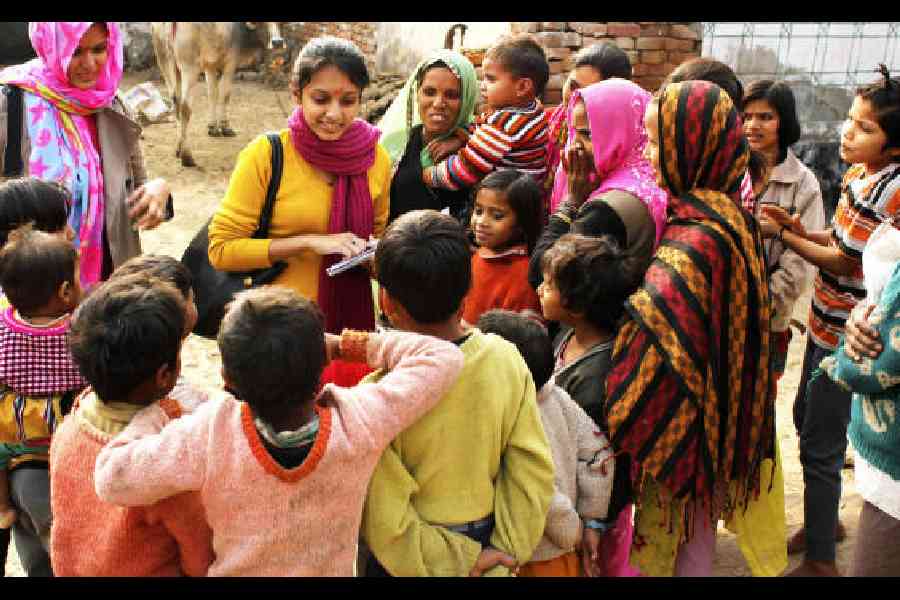Be the change


Not all lessons happen within four walls. Some assume the shape of field visits to underserved districts, policy review meetings with local governments or Excel sheets filled with data, which read closely, reveal patterns of inequality, access and opportunity.
For a growing number of young economists, public policy — once a niche interest — has become a calling. Blending research, governance and people-centric thinking, the realm of public policy is drawing in students not just for the opportunities it offers, but for the questions it asks.
“I used to think economics was just about money, markets and models,” says Ayushi Malhotra, a final-year student of Pune’s Gokhale Institute of Politics and Economics (GIPE). “But when I saw how dropout rates changed with a simple cash transfer scheme, I realised this is where data becomes dignity.”
Across campuses in India, students are turning their academic training into instruments of change. Armed with economics, statistics and a growing awareness of systemic gaps, many are venturing into policy spaces that demand both rigour and empathy. Fellowships with district administrations, internships at think tanks and grassroots research projects are now essential stops on the journey.
“I didn’t expect to be sitting in a room with health officers at 21, discussing menstrual hygiene data from schools,” says Mehak Kapoor, a final-year student from Delhi University (DU), who interned on a state-level health project. “It’s real, it’s messy, and it’s meaningful.”
At places like GIPE, DU, Jawaharlal Nehru University and the Indian Statistical Institute, the shift is visible. Econometrics classes now end in debates about governance. Students track Union budgets with as much passion as they follow sports. Public finance, development policy and behavioural economics are not just electives — they are passports to a world where theories meet tough trade-offs.
“Sometimes you just need to sit with a group of women and explain why a savings group might work better than a one-time loan,” says Zehra Naqvi, who recently completed a project on women’s financial inclusion in Bihar. “Policy isn’t just paperwork. It’s persuasion.”
Some young economists join think tanks like PRS Legislative Research or the Centre for Policy Research. Others work with international organisations, policy labs or even start their own initiatives. Many go on to pursue advanced degrees — in India or abroad — that blend economics with law, technology or environmental science.
Yet the most powerful learning, students say, happens outside formal institutions. Kartik Iyer, a fellow placed with a district administration in Odisha, puts it simply: “I learnt more in three months of fieldwork than in three years of lectures.”
In the last few years, student-led policy collectives and campus research groups have grown more active — writing white papers, organising dialogues and contributing to real consultations. “We don’t want to just critique. We want to propose,” says Ishan Bhardwaj, who co-founded a youth policy circle in Pune. “Even if it’s a model for better public toilets, it counts.”
“Last month, our research helped a state government tweak how they distribute disability pensions,” says Nivedita Sen, a data analyst at a public policy lab in Karnataka. “It wasn’t headline news — but for the people who’d waited months for assistance, it was everything.”
For Aamir Hussain, who recently returned from an internship on coastal regulation policies, the takeaway was even simpler — “Sometimes all you do is ask a better question. That alone can shift a policy.”
Some, inspired by the journeys of economists such as Amartya Sen, Abhijit Banerjee and Esther Duflo, choose the research route. It begins with a grounding in economic theory, followed by research assistantships or stints at policy labs, and typically leads to a master’s or PhD in development economics or public policy. Says Aanya Lal, a third-year student at Ashoka University, Delhi, “It’s about becoming the kind of economist who understands people and policy.”
At its core, this shift isn’t just about career choices — it’s about a generation of young economists asking bigger questions. What should be the role of the state? Who gets left out of policy decisions? What does progress mean? And how can we build systems that don’t just look good on paper?
These are questions without easy answers. But as more students bring curiosity, courage and competence into the policy space, the answers are beginning to emerge.